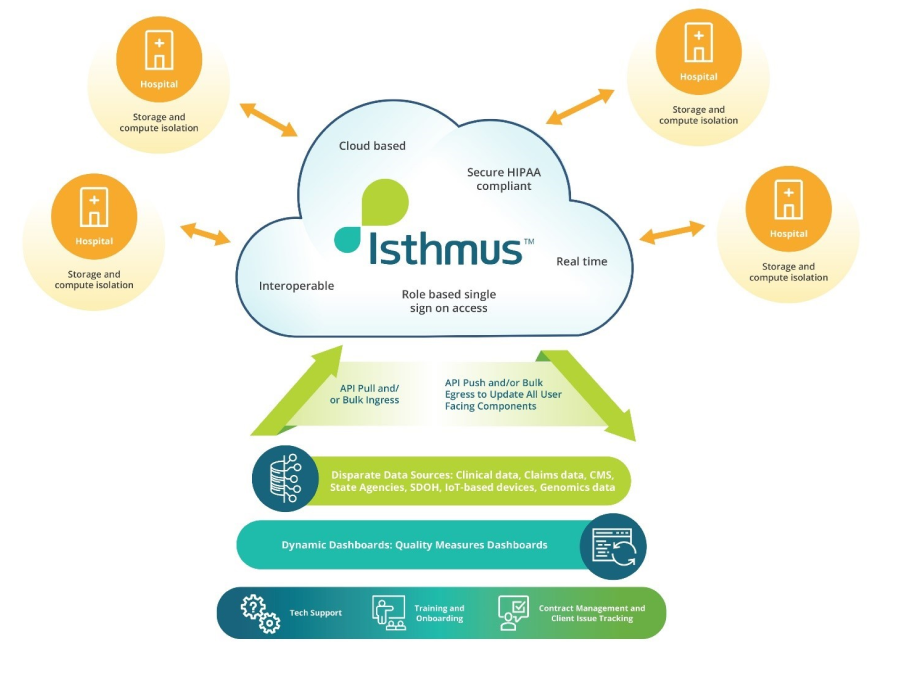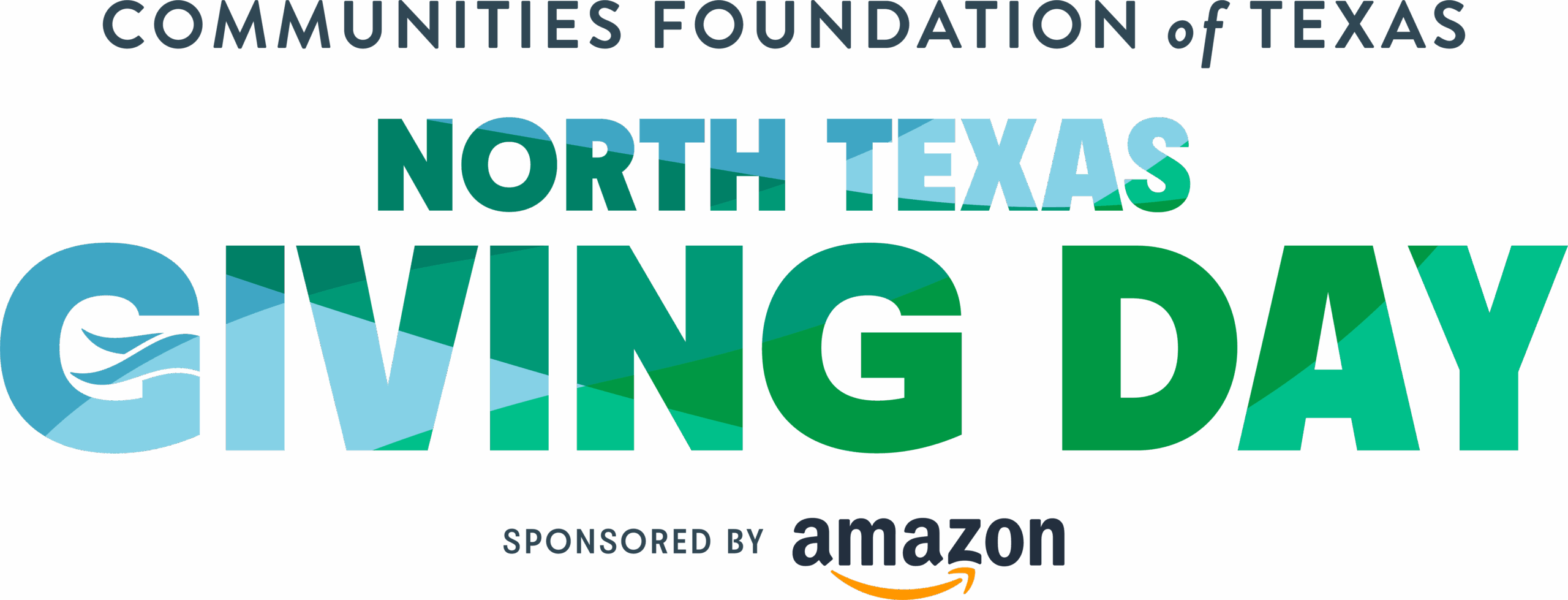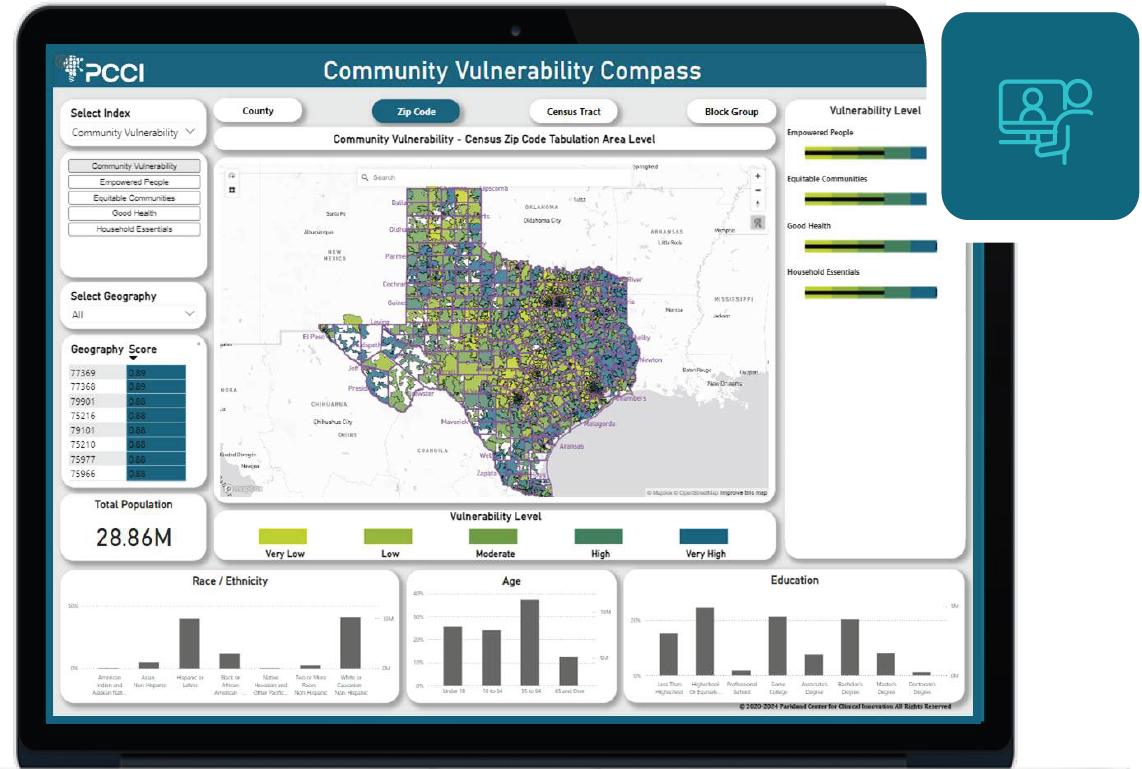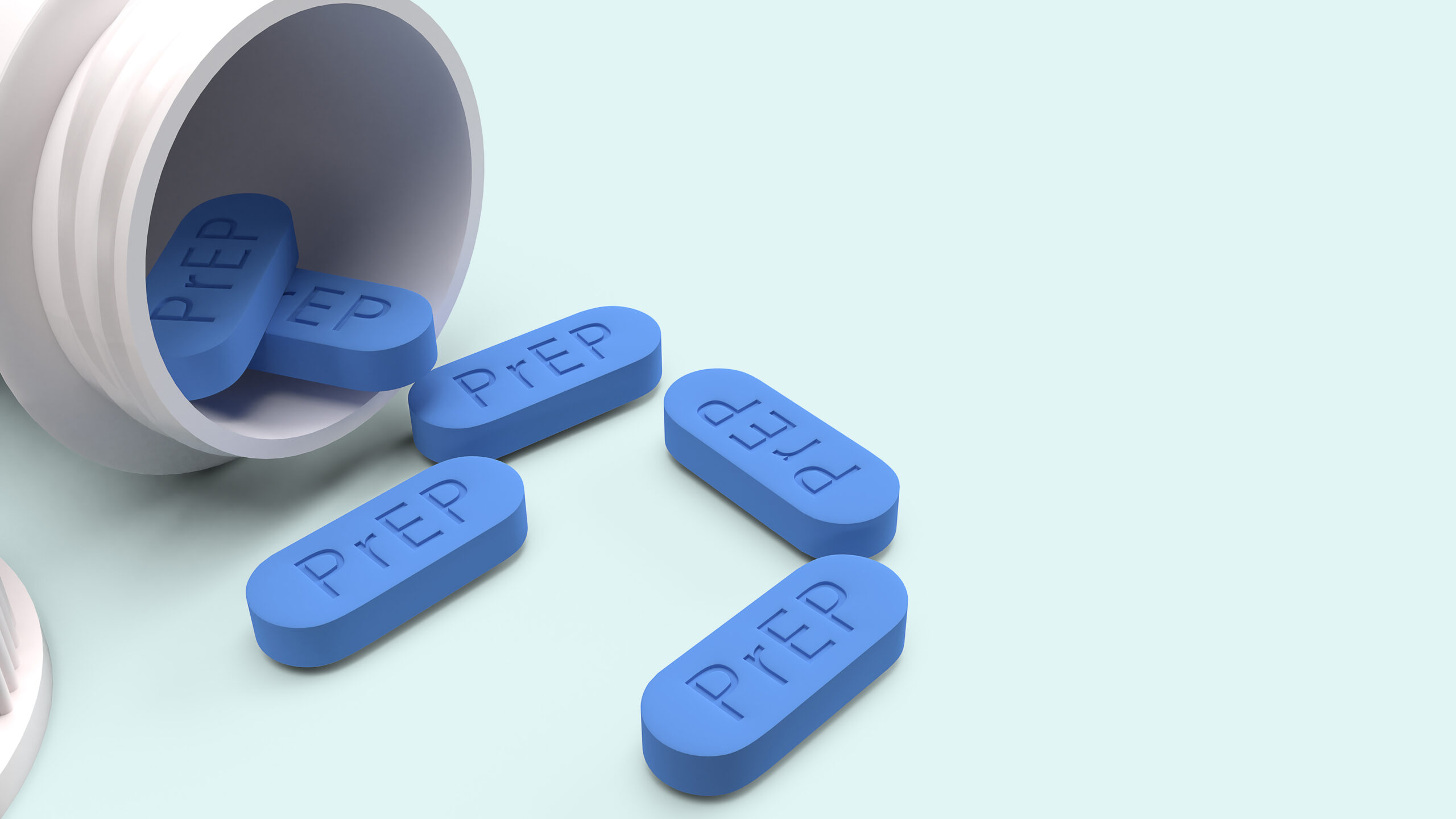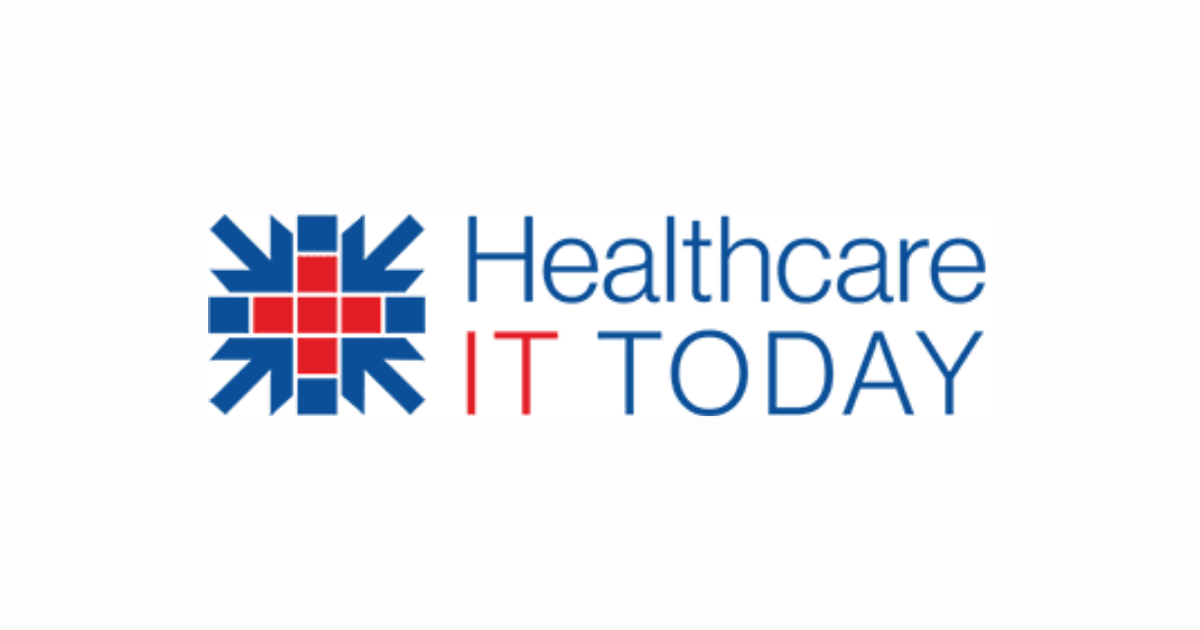
PIONEERING NEW WAYS TO HEALTH
PCCI leverages clinical expertise, data science and Non-Medical Drivers of Health to address the needs of vulnerable populations.
AI in Medicine for Underserved Populations.
ABOUT PCCI
PCCI is a mission-driven research organization with industry-leading expertise in the practical applications of artificial intelligence and Non Medical Drivers of Health. We strive to leapfrog the status quo by harnessing the transformative potential of data. Our unique capabilities allow us to provide innovative, actionable solutions that more effectively identify needs, prioritize services, empower providers and engage patients.
PCCI started as a department within Parkland Health and was spun out as an independent, not-for-profit organization in 2012 to not only serve the needs of Parkland, but to also pursue additional transformative initiatives that could have a broader impact. PCCI remains tightly connected to Parkland Health, the Parkland Foundation and the Parkland Community Health Plan. Our collaborative work focuses on the needs of vulnerable populations across North Texas and beyond.
PCCI Improves Community Health Through AI and NMDOH Analytics
PCCI is one of only a few organizations with over a decade of experience researching, testing, and using AI, non-medical drivers of health (NMDoH), and connected communities of care exclusively to improve the health and well-being of underserved populations. From the creation of responsible AI-in-Medicine for Underserved Populations (AIM-UP) to designing and deploying, at scale, NMDoH technology such as IRIS™, one of the first U.S. case management and closed-loop referral platforms with an awarded patent, and the Community Vulnerability Compass for measuring social vulnerability, PCCI is pioneering AI innovations and NMDoH analytics and advancing personalized health for the most marginalized community members.
To fuel broader innovation and share the unique experience of advancing these innovations for underserved populations, we regularly collaborate with diverse organizations through national AI collaboratives (Health AI Partnership, National Academy of Medicine AI Adoption and Code of Conduct Committee), grant activities (CMS AHC, Kaiser AIM-HI), and presentations and publications (Connected Communities of Care Playbook, Pediatric Asthma Surveillance System).

AIM-UP Enabled
Digital Technology and AI Models
PCCI’s AIM-UP predictive models drive augmented intelligence for clinicians and personalized patient engagement. The core technologies powering these models include Isthmus™, our interoperable, cloud-based digital data environment; ISLET™, a web-based predictive model visualization tool that seamlessly integrates model results into existing EHR systems; and our automated AI model monitoring (AaIM) technology.

AI for Clinical
Decision Support
Powered by PCCI’s AIM-UP, our clinical decision support AI/ML predictive models are designed to empower healthcare teams by providing augmented intelligence and insights to generate early warnings for clinical deterioration, enhance their point-of-care decision-making, and enable them to intervene earlier and with more precision.

NMDoH Analytics
Leveraging our advanced NMDoH analytics through tools such as our Community Vulnerability Compass, we are able to quantify community-based socioeconomic vulnerabilities and provide root cause insights to support local community engagement and create connected communities of care.

AI for Population Health
Our population health AI/ML predictive models help health systems and their community partners identify rising risks for clinical deterioration and access barriers to enable earlier and more targeted interventions. The goal is to move care and prevention upstream and proactively engage individuals in hyper-personalized ways to improve their health and avoid emergency room visits and hospitalizations.
PCCI’s NMDOH Innovation
Community Vulnerability Compass (CVC) provides a clear view of a community’s Non-Medical Drivers of Health.
The Community Vulnerability Compass (CVC) is a powerful, web-based interactive dashboard specifically engineered to support safety net hospitals, health systems, managed care organizations, payer plans, philanthropic entities, and community-based organizations in understanding and mitigating social vulnerabilities. By leveraging precise, hyper-local data on non-medical drivers of health (NMDOH), the CVC enables stakeholders to implement highly targeted interventions that address the underlying drivers of health disparities.
To explore how the tool can support your work, we’re offering a free interactive demonstration.
To contact us for more information or to set up a demo, email us at: info@pccinnovation.org
“We are incredibly excited about the potential for United Way of Metropolitan Dallas’ Data Capacity Building Initiative—our Century Project with PCCI. It is a game changing opportunity for the North Texas Community to drive significant impact alongside our community partners. And it is a significant focus of the United Way’s work in our next century and beyond.”
Jennifer Sampson
Chief Executive Officer of the United Way of Metropolitan Dallas
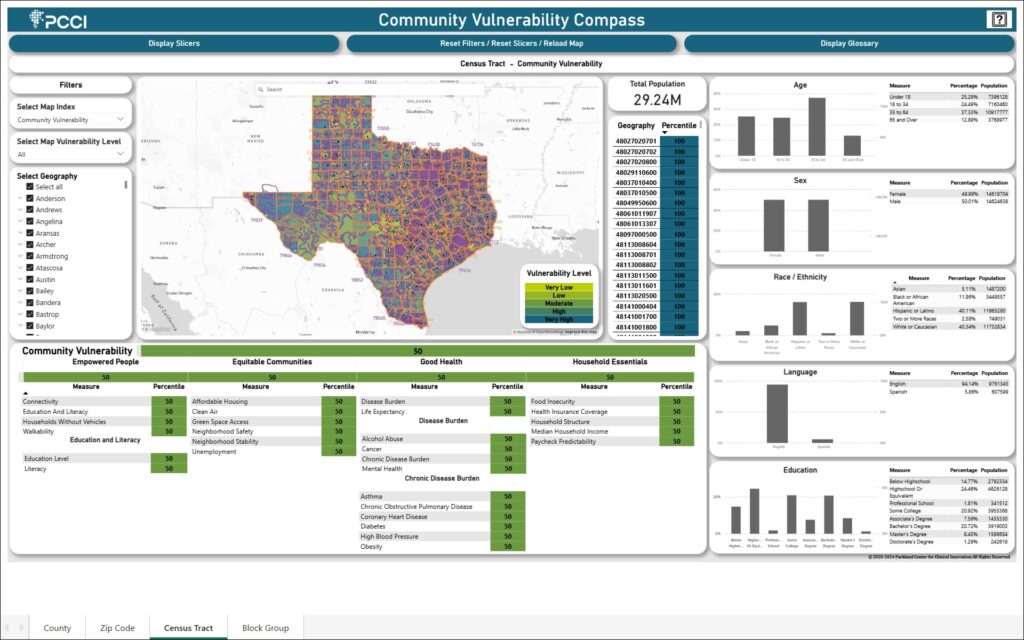
The CVC can help virtually any Texas-based organization (hospital system/health plan, care provider, CBO, public health entity, philanthropic funder, etc.) seeking to understand not only where its community’s most vulnerable residents live but also many of the underlying, multi-dimensional root cause factors driving these residents’ poor health and healthcare access and ability to thrive.

United Way of Metropolitan Dallas Century Project, the Data Capacity Building Initiative (DCBI)
As part of the United Way of Metropolitan’s six-year Data Capacity Building Initiative, over 200 North Texas nonprofits are leveraging PCCI’s CVC data insights to better understand their service areas, target high-need and priority interventions to local residents, strengthen their capacity to measure program performance for better operations, and foster collaboration to achieve community-wide goals.
University Health Transplant Center Better Serves its Community With CVC Data
University Health Transplant Institute partners with PCCI to implement innovative data management to improve patient outcomes.


PCCI’s Community Vulnerability Compass supports Dallas County Health and Human Services Department with Data Insights into its Residents
Dallas County Health and Human Services (DCHHS) leverages PCCI’s CVC through two primary methods: utilizing the CVC Online Dashboard to strategically prioritize outreach and campaigns based on social determinants of health (SDOH) and demographic insights and integrating reverse geocoded patient addresses with CVC block group data as a proxy for SDOH. This integration is embedded into their Salesforce platform and updates dynamically as patients call in.
JAMIA Open publishes a paper on PCCI's Community Vulnerability Compass (CVC)
JAMIA Open, a peer-reviewed journal from Oxford Academic Press, published a paper on PCCI’s Community Vulnerability Compass (CVC) In a paper titled “The Community Vulnerability Compass: a novel, scalable approach for measuring and visualizing social determinants of health insights.”
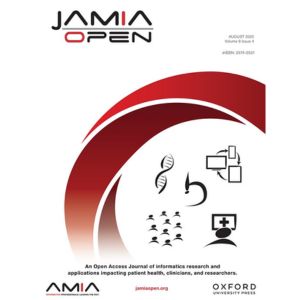
ISTHMUSTM
Next Generation Digital Data Environment to Enable Coordinated, Personalized Care
Our success requires a top-of-the line digital data environment where we can securely assemble data from disparate sources and normalize and standardize data streams to feed into our state-of-the-art data analytics. Isthmus™ was conceptualized from our own need to have a healthcare-specific, interoperable, analytical platform to build and more rapidly deploy (e.g., weeks vs months) scalable and repeatable solutions and to collaborate more efficiently with any provider. Isthmus currently supports >10 AI/ML models across diverse Texas settings.
